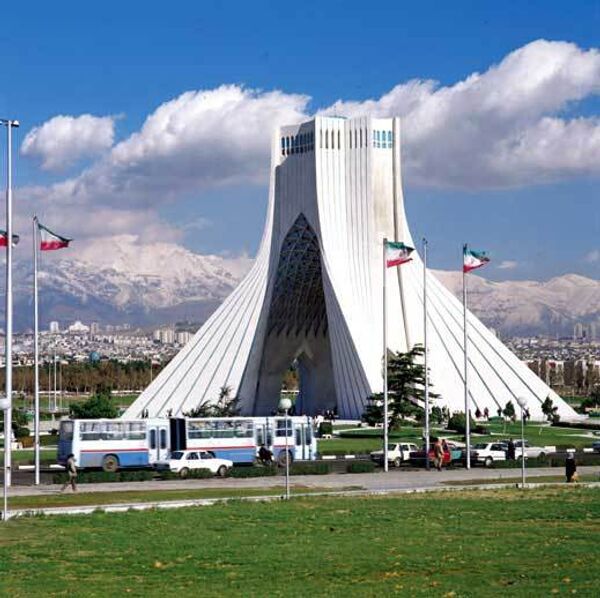MOSCOW, November 3 (RIA Novosti) - Thirty years after students stormed the U.S. Embassy in Tehran, the country's leadership continues to ignore the norms of international relations, a Russian expert said on Tuesday.
"By the embassy seizure Iran showed then that it is not guided by international law, that it plays by its own rules," Boris Makarenko, the head of the Center for Political Technologies, said on the eve of Wednesday's 30th anniversary of the seizure of U.S. Embassy in Tehran by Islamist students.
Fifty-two U.S. diplomats were held by the students for 444 days, with the United States cutting off diplomatic ties with Iran five months into the crisis in April 1980, since when Washington and Tehran have had no direct diplomatic relations.
"Iran has remained a theocracy with minimal electoral procedures. Theocracy inside the country means a tough authoritarian regime and in foreign policy it means unpredictable behavior," Makarenko said.
"So when [President Mahmoud] Ahmadinejad speaks... about the liquidation of Israel, on the one hand everyone understands he won't bomb Israel tomorrow. But on the other hand everyone understands that anything can be expected from Iran. This has not changed in Iran's policy for 30 years," Makarenko said.
Ahmadinejad once said Israel should be wiped off the map and called on Europe or North America to host a Jewish state.
The comment, the translation of which is disputed, was made four years ago, and Alexander Umnov, senior research fellow of the Institute of World Economics and International Relations, says Iran's policy regarding the U.S. has become more weighted.
"Statements are appearing that 'We are not enemies of the American people,' and that it is possible under certain conditions to normalize Iranian-American relations," he said on Tuesday. "Such statements were not made before, but now they are."
Makarenko, however, was less optimistic, accusing the Iranian leadership of continuing to seek nuclear weapons despite international efforts.
"The urge to possess nuclear weapons and extremist statements from 'high levels' are anti-American even if they do not touch upon the U.S. directly. Iran continues pursuing a policy the U.S. deems inacceptable," Makarenko said, warning that Tehran counted on Moscow to defend it against the United States and Israel, both diplomatically and possibly militarily.
"Iran expects to get Russian protection from U.S. and Israeli threats - both in the figurative sense, that Russia will defend Iran in international organizations, and directly, Iran wants to obtain weapons," he said.
The West led by the United States accuses Iran of pursuing a secret nuclear weapons program but the Islamic Republic has said it needs nuclear power solely for civilian purposes.
Russia has along with China limited the severity of UN sanctions against Iran, but has recently suggested more openness to further action. It is also in no hurry to fulfill a 2005 deal for Iran to buy Russia's advanced S-300 surface-to-air missile systems, which would radically improve Iran's defenses against a potential Israeli airstrike on its nuclear facilities.


